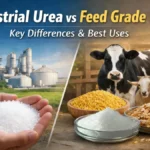Let more growers get greater benefits
Phosphate Fertilizers: The Scientific Foundation for Thriving Soybean Roots
- Industry News
- May 15, 2015
- 11:45 am
【Description】

In the vast landscape of modern agriculture, soybeans are a vital economic crop, directly influencing the food industry and ecological balance. Single super phosphate, triple super phosphate, and other phosphate fertilizers play crucial roles in the soybean growth cycle, supporting root development and enhancing overall plant health and yield.
Single Super Phosphate: Supporting Root Development
Phosphorus is one of the essential nutrients for plant growth, particularly important for leguminous crops like soybeans. Single super phosphate effectively promotes the development of soybean roots, enhancing the activity of root nodules and optimizing nitrogen fixation efficiency. This accelerates the growth cycle of soybeans and improves the crop’s resistance to adverse conditions.
Triple Super Phosphate: Enhancing Nutrient Uptake
Triple super phosphate is a concentrated form of phosphorus that boosts the nutrient uptake in soybeans. This fertilizer ensures that soybeans receive an adequate supply of phosphorus, which is vital for several biochemical reactions, including energy transfer and genetic material replication. The enhanced nutrient uptake leads to healthier plants with better growth and development.
Urea and Phosphate: Synergistic Effects on Soybean Growth
The combined application of urea and phosphate can significantly increase the number of pods and grain weight in soybeans. Phosphorus, in conjunction with nitrogen from urea, plays a crucial role in protein synthesis and overall plant growth. This synergy ensures balanced nutrition, leading to optimal growth and higher yields.
Mono Potassium Phosphate Fertilizer: Improving Plant Vigor
Mono potassium phosphate fertilizer is a highly efficient source of both potassium and phosphorus, essential for the healthy growth of soybeans. Potassium helps regulate various physiological processes, while phosphorus supports root development and energy transfer. The application of this fertilizer enhances photosynthesis, nutrient uptake, and overall plant vigor, resulting in higher yields and better quality soybeans.
Diammonium Phosphate: Boosting Protein Content
The use of diammonium phosphate in soybean cultivation can significantly improve the protein content of the crop. Phosphorus plays a vital role in the plant’s metabolic processes, contributing to protein synthesis and overall growth. By providing a readily available source of phosphorus and nitrogen, diammonium phosphate supports the development of robust, healthy soybean plants with higher nutritional value.
In modern soybean farming, the precise measurement of soil phosphorus levels and the timely, appropriate application of fertilizers like single super phosphate and triple super phosphate are key to achieving high yields and efficiency. This approach ensures not only the production of high-quality soybeans but also promotes sustainable agriculture and the rational use of land resources.The application of phosphorus fertilizers is a blend of modern scientific theory and practical experience, acting as the “secret weapon” in soybean growth. By understanding the mechanisms of these fertilizers and applying them scientifically, farmers and agricultural researchers can build a more stable and efficient agricultural production system, providing a continuous supply of green, high-quality food resources for society.
TRENDING
Want to find a China fertilizer manufacturer?
Risso will be your best choice; send us your request for your fertilizer details requirement
TAIAN RISSO CHEMICAL FERTILIZER CO.,LTD.
- Address: High-tech Development Zone, Taian City, Shandong Province
© Copyright 2017 RISSO CHEMICAL. All Rights Reserved.







